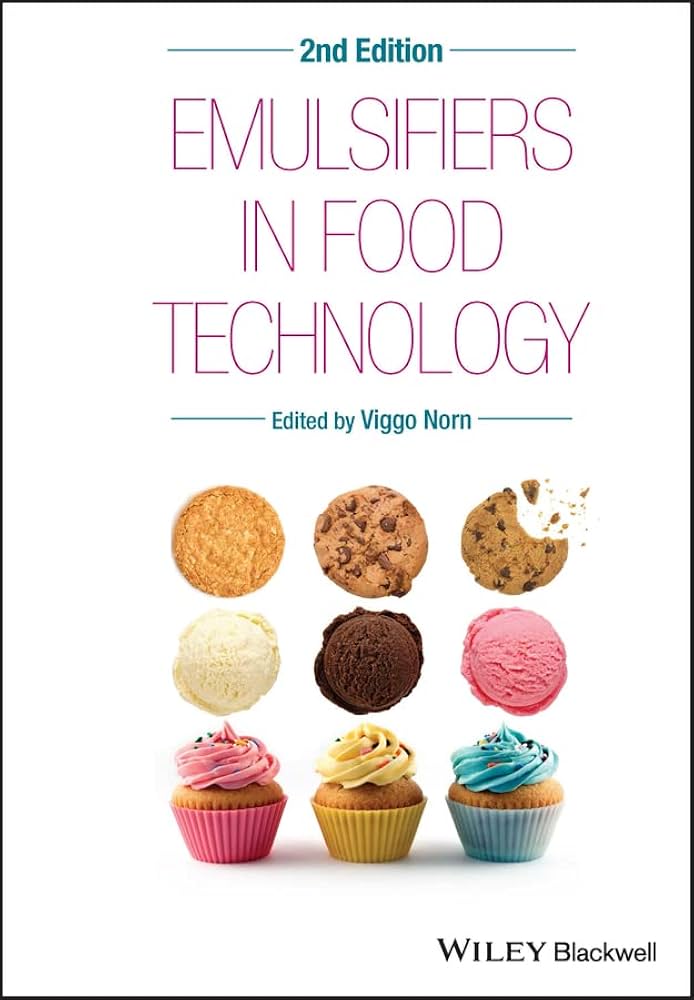Learn How an Emulsifier in Food Can Aid Achieve Flawlessly Mixed Dishes Each Time
Emulsifiers are essential active ingredients in the culinary globe, allowing the mixing of oil and water-based parts. Their capability to minimize surface area tension enables for the production of stable combinations, enhancing both structure and flavor in various recipes. Recognizing how these substances feature can change the means one comes close to food preparation. Several remain unaware of the various types of emulsifiers and their specific applications. Discovering this subject reveals beneficial insights for achieving culinary excellence.
What Are Emulsifiers and How Do They Function?
Emulsifiers play an essential role in the food sector by making it possible for the steady blending of active ingredients that normally do not combine, such as oil and water. These materials have both hydrophilic (water-attracting) and hydrophobic (water-repelling) residential properties, enabling them to connect with both kinds of components. When an emulsifier is included in a mix, it minimizes the surface area tension in between the oil and water, assisting in the development of small beads of one fluid spread within the other. This process creates a stable solution, protecting against splitting up over time and enhancing appearance and mouthfeel. Emulsifiers are essential in numerous food, from salad dressings to ice lotions, ensuring consistency and top quality. They likewise add to the overall sensory experience of food, influencing taste launch and visual charm. Recognizing just how emulsifiers work is important for food scientists and chefs alike, as they venture to develop pleasurable and well balanced cooking experiences.
Typical Sorts Of Emulsifiers Used in Food Preparation
Many kinds of emulsifiers are made use of in cooking to accomplish desired structures and security in numerous food products. Typical emulsifiers include lecithin, which is naturally found in egg yolks and soybeans, and is commonly utilized in mayonnaise and dressings. One more common emulsifier is mustard, which has substances that assist mix oil and water in sauces.
In addition, business emulsifiers such as mono- and diglycerides are frequently included in refined foods to boost their stability and enhance life span. Starch-based emulsifiers, derived from corn or potatoes, are additionally used in gravies and puddings for enlarging and appearance. Finally, casein, a milk protein, offers as an emulsifying agent in milk products like cheese and lotion. Each of these emulsifiers plays an important role in ensuring that active ingredients blend flawlessly, supplying the desired uniformity and taste in culinary productions.
The Scientific research Behind Emulsification

The stability of an emulsion depends on the balance in between the forces acting on the dispersed droplets. If the beads integrate, the emulsion can damage, causing splitting up. Numerous aspects, such as temperature level, concentration of the emulsifier, and the technique of mixing, influence the success of emulsification. Comprehending this clinical foundation is essential for accomplishing regular lead to cooking applications involving solutions.
Tips for Utilizing Emulsifiers in Your Recipes
When incorporating emulsifiers into recipes, mindful consideration of their homes and performance can significantly boost the final product. One ought to select the suitable emulsifier based on the preferred appearance and security of the dish. Common choices include mustard, find more information lecithin, and egg his explanation yolks, each offering distinct advantages
It's necessary to understand the temperature level at which the emulsifier works ideal; for instance, some emulsifiers work properly at room temperature level, while others require heat. Gradually adding oil to the emulsifier while blending can assist develop a steady emulsion.
In addition, the ratio of emulsifier to fluid is important; insufficient may lead to separation, while as well much can create an unfavorable appearance. Proper storage conditions need to be considered, as some emulsified items may call for refrigeration to preserve security and quality. By complying with these tips, chefs can attain consistently well-blended recipes.

Delicious Recipes Featuring Emulsifiers
While many cooks might not understand it, including emulsifiers into recipes can elevate dishes to brand-new heights of taste and structure. For example, a timeless vinaigrette advantages considerably from the enhancement of mustard, which serves as an emulsifier, supplying a smooth uniformity that binds oil and vinegar seamlessly. Homemade mayonnaise showcases the power of egg yolks, producing a creamy, lavish sauce best for salads and sandwiches. - Emulsifier In Food
In baking, emulsifiers like lecithin can assist achieve a tender crumb in muffins and cakes, enhancing moisture retention. A rich delicious chocolate ganache, made with whipping cream and chocolate, can also include an emulsifier to keep a smooth finish. In addition, gelato usually make use of emulsifiers to protect against and assure a creamy appearance ice crystal development, resulting in a delightful treat experience. By integrating these emulsifying agents, chefs can develop recipes that delight the palate and give a rewarding mouthfeel.
Frequently Asked Inquiries
Are Emulsifiers Safe for Individuals With Food Allergies?
Emulsifiers can be risk-free for people with food allergies, depending on the details emulsifier made use of. Cross-reactivity and specific level of sensitivities differ; consequently, speaking with a healthcare specialist is recommended to assure security.
Can I Make My Very Own Emulsifier at Home?
Yes, individuals can develop homemade emulsifiers utilizing ingredients like egg yolks, mustard, or honey. These all-natural alternatives can efficiently mix oils and water-based parts, supplying an easy service for various culinary applications.
How Do Emulsifiers Impact the Nutritional Worth of Food?
Emulsifiers can boost the dietary value of food by boosting my response nutrient absorption and stability. However, excessive usage might result in negative impacts, possibly modifying digestion procedures and influencing gut health and wellness in delicate people.


Exist Any Kind Of Unfavorable Side Impacts of Consuming Emulsifiers?
Some researches suggest that eating emulsifiers might bring about stomach problems or interrupt gut microbiota balance. However, additional research is required to fully recognize their long-lasting effects on health and wellness and prospective negative adverse effects.
Can Emulsifiers Modification the Flavor of My Dishes?
Emulsifiers can subtly modify the taste profile of recipes. By improving texture and mouthfeel, they may make tastes a lot more well balanced or obvious, however they commonly do not convey solid tastes on their very own.
Emulsifiers play an essential role in the food market by making it possible for the stable blending of ingredients that typically do not integrate, such as oil and water. Various types of emulsifiers are utilized in cooking to accomplish wanted structures and stability in different food products. Furthermore, business emulsifiers such as mono- and diglycerides are often added to processed foods to enhance their stability and improve rack life. It's vital to recognize the temperature at which the emulsifier functions finest; for circumstances, some emulsifiers work effectively at room temperature, while others need warmth (Emulsifier In Food). Emulsifiers can be risk-free for individuals with food allergic reactions, depending on the specific emulsifier utilized